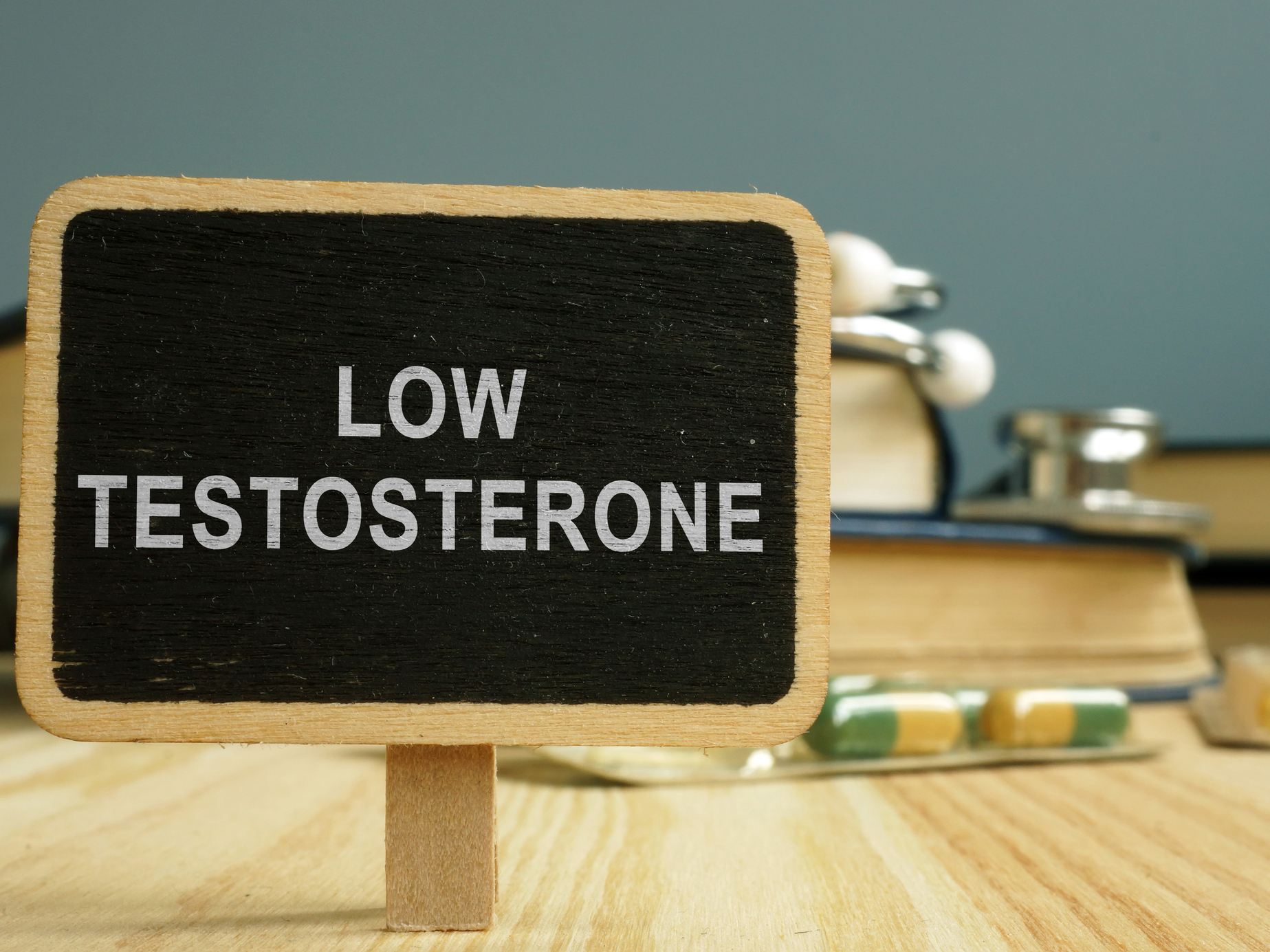Get Easy Health Digest™ in your inbox and don’t miss a thing when you subscribe today. Plus, get the free bonus report, Mother Nature’s Tips, Tricks and Remedies for Cholesterol, Blood Pressure & Blood Sugar as my way of saying welcome to the community!
The weight loss trap that tanks testosterone

Did you know that 500,000 men per year in the U.S. alone are diagnosed with low testosterone levels?
Yup, every single year a half million men walk out of their doctor’s office after being told that they’re living with low T.
And, it’s likely that that number represents only a drop in the bucket of the true statistic since far too many men never even get tested and write off the symptoms from the lack of hormones as simple aging, including:
- Decreased energy
- Low libido
- Increased body fat
- Reduce bone mineral density
- Sleep disturbances
- Depression
And, when you look at that list, it’s easy to see how that could happen.
Unfortunately, low T can lead to far more than feeling older and more out of shape than you would like. In fact, studies have linked low levels of testosterone in men to a higher risk of death from heart disease and other causes.
Even worse, those dangers don’t necessarily go away if you decide to turn to testosterone therapy. According to Harvard Men’s Health Watch, men on testosterone therapy long-term, “Appear to have a higher risk of cardiovascular problems, like heart attacks, strokes, and deaths from heart disease.”
This means that while you need to get your testosterone back up to protect your heart, you also need to do it naturally, without testosterone therapy in order to get any heart health benefits.
And, one of the best ways to raise your testosterone is to lose weight.
Now, however, a brand new study is sending out a warning that if you plan to increase your testosterone by increasing your weight loss, there’s one diet you should avoid…
Fat and cholesterol hormones
Prior to this study, there was almost no research whatsoever on how specific diets could affect serum testosterone, so men had to simply take a shot in the dark when they chose a weight loss plan. So, a multi-university team set out to change that…
They analyzed data on more than 3,100 men from a nationwide health study and compared their diet to their serum testosterone level.
And, they found that one diet stood out — and not in a good way…
The team discovered that men on a low-fat diet had serum testosterone levels that were on average 14.5 points lower than men not on a fat-restrictive diet.
In other words, a low-fat diet and low testosterone go hand-in-hand.
Why?
Well, according to the researchers, it’s likely due to the fact that testosterone is a steroid hormone derived from cholesterol and therefore changes in fat intake have the ability to alter testosterone levels.
Keeping the fat
This means that if you want to boost your testosterone, you need to lose the fat without skipping the fat.
This makes going keto a great choice for men needing to up their T levels since it can provide the weight loss you need while still keeping the fat and cholesterol (that serves as testosterone building blocks) as part of your diet.
In fact, studies have proven that the keto diet is a good way to raise testosterone levels while lowering body fat.
If you haven’t heard of keto before, here’s a quick crash course on the diet.
- Foods to avoid – Skip the sugars, grains, starches, fruits, beans, root vegetables, condiments, and alcohol.
- Foods to eat – Instead, base your meals on healthy oils, meats, fatty fish, eggs, butter, cream, unprocessed cheeses, nuts and seeds, avocadoes, and low-carb veggies (like cauliflower, asparagus, and peppers).
You can also boost testosterone levels by:
- Getting enough sleep – Just a week without enough sleep can drop your testosterone by a whopping 15 percent.
- Staying active – A study in the European Journal of Applied Physiology proved that higher levels of physical activity lead to higher T levels.
- Supplementing – Vitamin D supplements can also help boost your testosterone levels.
- Check your medications – Many prescriptions drug, including statins, contribute to drops in testosterone so be sure to consider the medications you’re taking.
In addition to these steps to enhance your natural testosterone production, it’s also important to address any estrogen issues as well since numerous man-made chemicals, called xenoestrogens, can upset your natural hormone balance. This can lead to a condition known as estrogen dominance.
Di-Indole Methane or DIM, a phytonutrient found in cruciferous vegetables, such as broccoli, cabbage, bok choy, and cauliflower can help. It works by latching onto the “fake estrogens” in your body, neutralizing them, and carrying them safely out of your body — supporting healthy hormone balance.
As each year passes, you run a higher risk of suffering from low T as well as the symptoms and dangers that come with it. Protect yourself by choosing the right diet and using the tips above to raise your testosterone naturally while sweeping away the fake estrogens in your body that destroy your hormonal balance.
Editor’s note: Did you know that when you take your body from acid to alkaline you can boost your energy, lose weight, soothe digestion, avoid illness and achieve wellness? Click here to discover The Alkaline Secret to Ultimate Vitality and revive your life today!
Sources:
- Low-fat diet linked to lower testosterone levels in men — EurekAlert
- Low Testosterone (Low-T) — MedicineNet.com
- Low serum testosterone and mortality in older men — The Journal of Clinical Endocrinology and Metabolism
- Is testosterone therapy safe? Take a breath before you take the plunge — Harvard Health
- The Effects of Ketogenic Dieting on Body Composition, Strength, Power, and Hormonal Profiles in Resistance Training Males — The Journal of Strength and Conditioning Research
- Ketogenic diet and testosterone increase: Is the increased cholesterol intake responsible? To what extent and under what circumstances can there be benefits? — HORMONES
- How do you boost testosterone naturally? — Medical News Today













